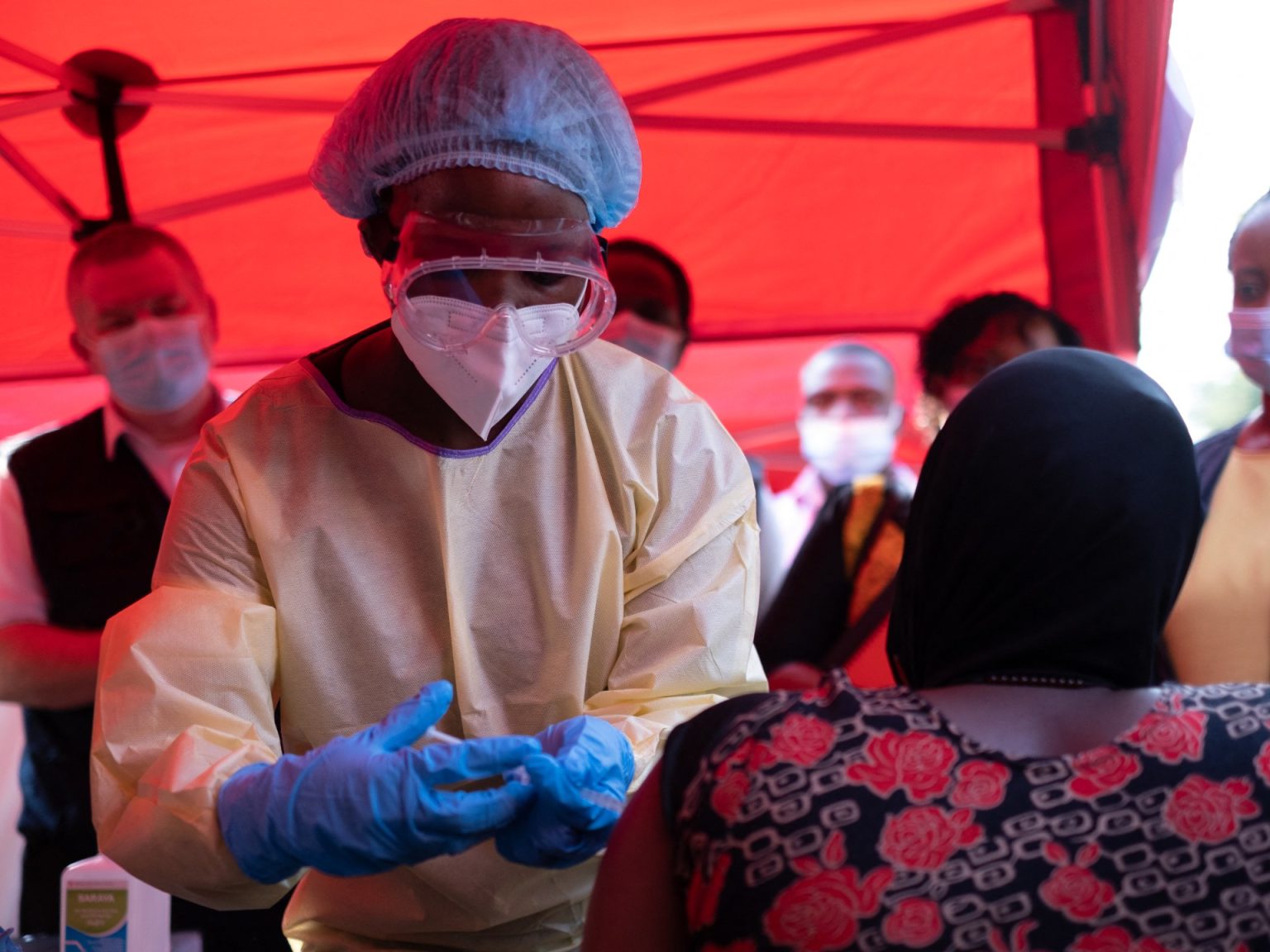The outbreak of the Sudan Ebola virus in Uganda has prompted a swift response, including the commencement of a clinical trial for a candidate vaccine. This marks the sixth time Uganda has grappled with this particular strain of Ebola, a virus for which no approved vaccine currently exists. The trial aims to assess the efficacy of the vaccine in protecting individuals at high risk, particularly healthcare workers and those who have been in contact with confirmed cases. The speed with which this trial has been initiated highlights the advancements in preparedness and response protocols following previous outbreaks. The current outbreak, declared just last week, has already claimed the life of a nurse and infected several others, underscoring the urgency of finding effective preventive measures. The trial utilizes a “ring” vaccination strategy, targeting both direct contacts of confirmed cases and their subsequent contacts, creating a protective barrier around the known infections to limit further spread.
The Sudan Ebola virus is one of several Ebola virus species, each posing unique challenges in terms of prevention and treatment. While vaccines have been developed and approved for one of the Ebola species, the Zaire strain, the Sudan strain remains a significant threat due to the lack of a licensed vaccine. This underscores the importance of the ongoing trial in Uganda, as it represents a crucial step towards developing a much-needed countermeasure against this deadly pathogen. The current outbreak follows a pattern seen in previous instances of the Sudan Ebola virus, with Uganda bearing the brunt of five out of eight documented outbreaks, along with three occurrences in Sudan. The Democratic Republic of the Congo, while not affected by the Sudan strain, has experienced a disproportionate burden of Ebola outbreaks, including a devastating epidemic in 2020 that claimed over 2,280 lives. This historical context emphasizes the ongoing vulnerability of the region to Ebola outbreaks and the critical need for effective prevention and control measures.
The rapid initiation of the vaccine trial is a testament to the lessons learned from past Ebola outbreaks. During a previous outbreak of the Sudan Ebola virus in Uganda in 2022, a system for candidate vaccines was established, laying the groundwork for a more streamlined response in future outbreaks. This preparedness allowed for the swift deployment of the trial just days after the declaration of the current outbreak, demonstrating the importance of proactive measures in combating emerging infectious diseases. The “ring” vaccination approach, employed in this trial, is a targeted strategy designed to maximize the impact of limited vaccine supplies by prioritizing those at highest risk of infection. By vaccinating both direct contacts and their secondary contacts, the strategy aims to create concentric rings of protection around confirmed cases, effectively containing the spread of the virus.
Ebola virus transmission occurs through direct contact with bodily fluids of infected individuals. This poses a significant risk to healthcare workers, family members, and others who come into close contact with the sick. The primary symptoms of Ebola virus disease include fever, vomiting, bleeding, and diarrhea, often progressing rapidly and leading to severe illness and death if left untreated. The current outbreak, while geographically localized, underscores the global interconnectedness and the potential for rapid spread of infectious diseases. The international community is closely monitoring the situation and providing support to Uganda’s efforts to contain the outbreak. The WHO has played a key role in coordinating the response, providing technical expertise and resources to support the trial and other control measures.
The urgency of the situation is amplified by the absence of an approved vaccine or specific treatment for the Sudan Ebola virus. While supportive care can improve the chances of survival, there is no antiviral medication proven to be effective against this particular strain. This underscores the critical need for continued research and development of countermeasures to address this gap in public health preparedness. The ongoing trial in Uganda offers a beacon of hope, representing a significant step forward in the quest for an effective vaccine. The success of this trial could pave the way for the development of a life-saving intervention and strengthen global capacity to respond to future outbreaks of the Sudan Ebola virus.
The outbreak serves as a stark reminder of the ongoing threat posed by emerging infectious diseases and the importance of global collaboration in combating these threats. The rapid response in Uganda, supported by international organizations and research partners, exemplifies the power of collective action in addressing public health emergencies. The lessons learned from this outbreak will inform future preparedness and response efforts, contributing to a stronger and more resilient global health security framework. The trial represents a critical step forward in the fight against Ebola and highlights the importance of investing in research and development of countermeasures to protect vulnerable populations from the devastating impact of these deadly viruses. The world watches closely as the trial unfolds, hoping for a positive outcome that will bring much-needed relief to those affected by this outbreak and offer hope for a future free from the threat of Ebola.

